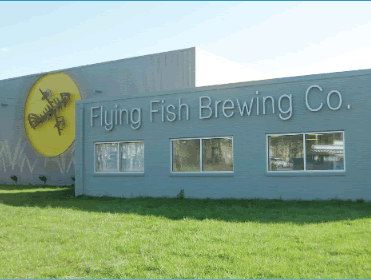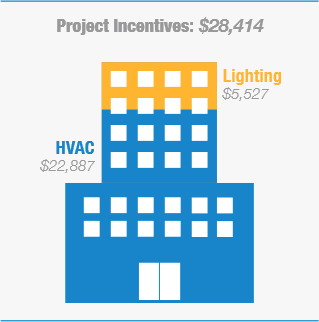Success Story: Flying Fish Brewery
| Project Highlights | ||
| Total Project Cost | $40,591 |
 With beer production a highly energy-intensive process, Flying Fish Brewing Company sought to reduce as much of its building’s energy use as possible. By replacing two HVAC units and completing a lighting retrofit, the brewery is estimated to save 35,644 kWh and 637 therms per year. |
| NJCEP Incentives | $28,414 | |
| Project Payback | 2.6 years | |
| Estimated Annual Savings | $4,015 35,644 kWh 637 therms |
|
| Direct Install Partner | Hutchinson Mechanical Services | |
| Technologies
Efficient lighting; 5-ton and 10-ton packaged HVAC units; dual enthalpy and forced air heat electronic fuel-use economizers |
||
| Project information, savings and environmental benefits were provided by the project contact. | ||
|
New Jersey's largest craft brewery supports local expansion with energy-saving technologies Background Flying Fish Brewing Company describes itself as an “intensely local” South Jersey brewery. Products include a series of beers named after New Jersey Turnpike exits. Their flavors are "as diverse as the great state of New Jersey." Founded in 1995, Flying Fish was the first microbrewery to open in South Jersey in more than 50 years. As popularity for the craft beer grew, founder and general manager Gene Muller realized his 13,000-square foot brewery in Cherry Hill could not keep up with demand. In 2012, Muller moved production to a 44,000-square foot warehouse in Somerdale. The new facility allowed Flying Fish to triple production and provide a tasting room for visitors. Flying Fish is now the largest craft brewery in the state. But the new brewery was equipped with outdated heating, ventilation and air conditioning (HVAC), as well as excessive, inefficient lighting. To make matters worse, as winter approached, the new building’s HVAC system started to fail. "The HVAC equipment was state-of-the- art...in the 1960s," Muller said. “Breweries use a lot of energy, and our needs are never going down. So we started looking for where we could reduce energy consumption." Flying Fish found major energy savings by tapping into New Jersey’s Clean Energy Program (NJCEP). |
|
|
The Direct Install program enabled us to do more than we could have afforded had we been writing the check on our own. Gene Muller
Flying Fish Brewing Co.
|
Solution Hutchinson Mechanical Services, a participating NJCEP contractor who had serviced Flying Fish’s previous building, recommended that Muller explore the NJCEP Direct Install program. The Direct Install program offered Flying Fish a free energy assessment as well as incentives that covered 70 percent of the cost to replace the new building’s inoperable and outdated equipment. Hutchinson installed two high-efficiency packaged heating and air conditioning units. The lighting was retrofitted throughout the brewery, office space and tasting room, improving the lighting quality while using fewer and more efficient lamps. Installing a digital thermostat allowed for separate temperature controls in the tasting room and offices. "The Direct Install program enabled us to do more than we could have afforded had we been writing the check on our own," Muller said. With the Direct Install program covering 70 percent of the cost, NJCEP incentives provided $28,414 of the $40,591 total project cost. The upgrades were estimated to save Flying Fish an additional 35,644 kWh and 637 therms per year, totaling about $4,015 annually. Beer production can itself be a highly energy-intensive process. In addition to the Direct Install measures, Flying Fish equipped the new brewery with a more efficient brew kettle. The brewery recaptures steam to produce one gallon of hot water for every five gallons of beer brewed. The building also features 463 solar panels to provide much of the electricity, passive solar lighting to reduce the need for artificial light, and a rain garden to divert storm water away from a nearby creek. "We wanted to make the building as sustainable as possible," Muller said. "It’s not only good for the environment. In the long run, it’s good business." |
More Information





.jpg)

.jpg)


